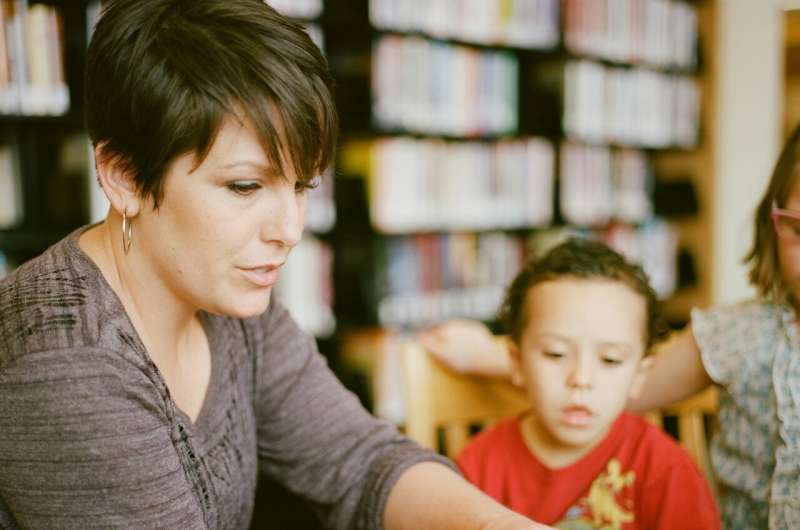This article has been reviewed according to Science X's editorial process and policies. Editors have highlighted the following attributes while ensuring the content's credibility:
fact-checked
trusted source
proofread
How do you teach young children about complex issues? New research suggests 'read-alouds'

For many educators today, introducing race into curricula is a fraught proposition. So how do teachers—tasked with new learning imperatives—even begin to introduce the subject to young children?
Jacquelyn M. Urbani, an associate professor of early childhood special education at Northeastern University, has published new research in The Reading Teacher that offers direction to help teachers prepare instruction that reflects "the varied experiences of diverse Americans."
Urbani recommends using "read-alouds" of children's books as a way to introduce complex issues to grade-school students.
The researchers note that reading aloud to children is a "common and pedagogically sound practice across grade levels."
"I think books are really a way to get kids just so excited about stories and learning and knowledge," Urbani tells Northeastern Global News.
Urbani says read-alouds also provide teachers with the opportunity to explore children's literature that directly address the complexities of America today.
One book, "Let the Children March," by Monica Clark-Robinson, published in 2018, is offered as an example of a text that teachers can integrate into their curricula.
The picture book documents the Children's Crusade of 1963, when more than 1,000 children and teens skipped classes to march to downtown Birmingham, Alabama, calling for an end to segregation. The march was a key moment in the civil rights movement.
The research provides steps for how to implement the text into second-grade instruction. Teachers should start with an "engaging read of the story" followed by subsequent re-reads; ask open-ended questions to facilitate conversations that "investigate multiple perspectives"; and anticipate student questions.
Researchers outline four key goals for the read-alouds, which include "establishing a safe community, choosing books purposefully, reading in an engaging manner and providing extension and enrichment activities."
Apropos of those goals, Urbani says that teachers should explore topics such as:
- How do you establish a community that is respectful of each other, regardless of the age of students you're working with?
- How do you choose which books are going to be appropriate?
- How do you engage students with the reading, and during the multiple re-reads of the texts?
- And how do you extend the topics and reading to other areas of your teaching?
Urbani notes that there have been challenges to "Let the Children March" amid a wave of book bans that have swept over America in recent years. The American Library Association's Office for Intellectual Freedom found 1,269 demands to censor library books and resources in 2022, with censors singling out more than 2,500 unique titles. That was roughly twice as many challenges documented in the prior year.
Urbani emphasizes the importance of talking to children about race at a young age. The American Psychological Association in 2020 found that children pick up on racial differences several years before adults typically talk to them about race.
"The research shows that little kids, toddlers essentially, understand racial differences," Urbani says.
More information: Jacquelyn M. Urbani et al, Learning about America's Racial Issues: Beginning Difficult Conversations through Read‐Alouds, The Reading Teacher (2024). DOI: 10.1002/trtr.2285
Provided by Northeastern University
This story is republished courtesy of Northeastern Global News news.northeastern.edu.




















